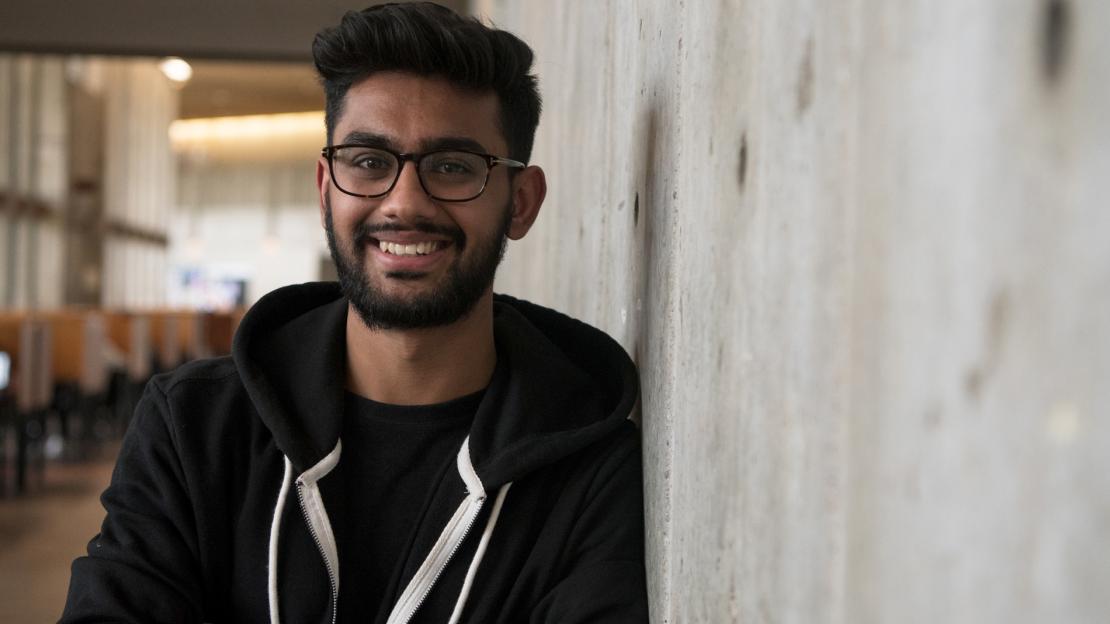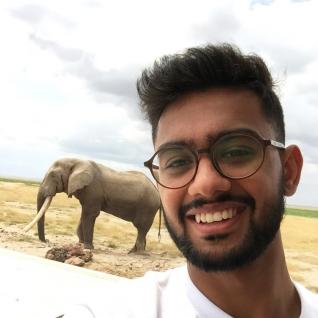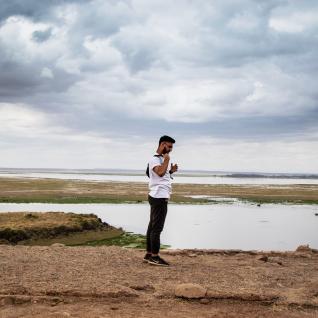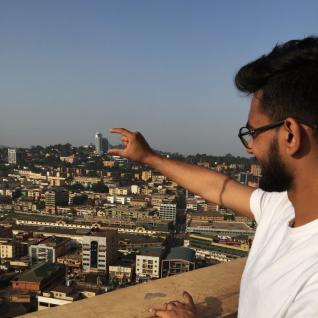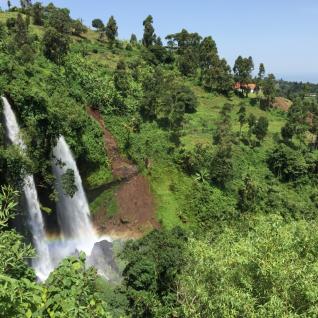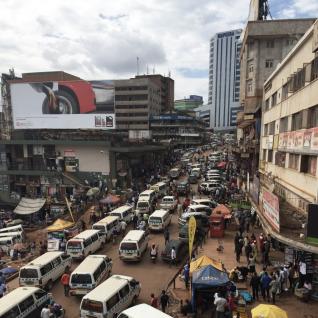Mobeen Lalani travelled to Uganda for a study abroad opportunity, and left with a greater passion to work in global health.
His interest in science is generational – his mother wanted to be a nurse, and studied sciences throughout her post-secondary. Lalani is a first-generation student, and the first of his immediate family to complete university.
“As a young boy, I had science engraved in me,” Lalani, a fourth-year molecular biology and population health student, says. “I carried that passion when I came to university.”
Lalani travelled to Kampala, Uganda, where he studied at Makerere University and interned with an NGO called LifeNet International, which works to improve health centres in countries across Africa. Along with 30 other post-secondary students across North America, the three-month trip offered an opportunity to travel, study and intern abroad.
Lalani was put on a pilot project to analyze the cost efficiency of Ugandans accessing health facilities, specifically those who have been diagnosed with non-communicable diseases including, cardiovascular disease (CVD) and Type-2 diabetes (DMII).
“The goal is to look at the implementation of health policy and how we can work together in building relationships with community-based workers in African countries and assisting them through international funding,” Lalani explains.
The group travelled six hours outside of Kampala to visit health facilities in Masaka, including Mbarara, Mbale and Nkoni -- towns southwest of Kampala. But, there is a barrier in receiving health care for those who live in villages, which left an under-representation in the data they were gathering. It also raised the question if those living in rural areas were known if they were diagnosed with CVD or DMII.
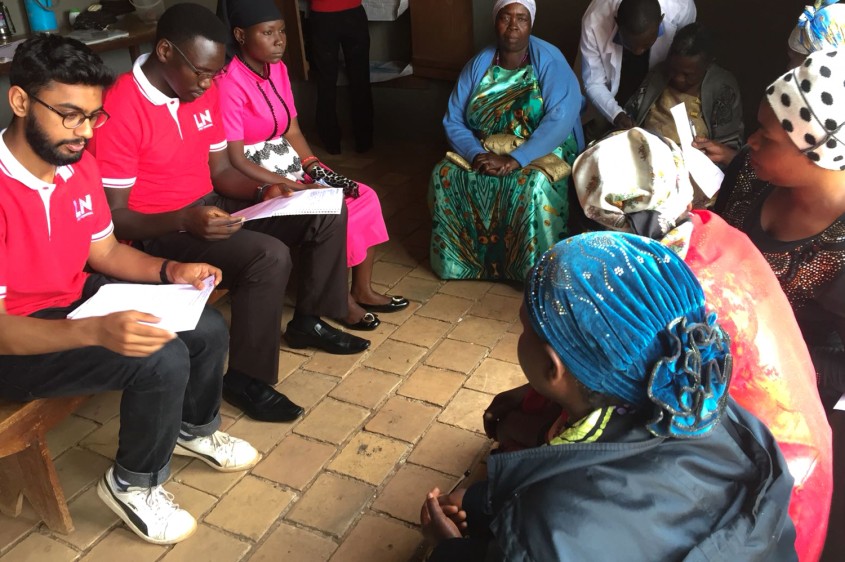
With that the group went out to villages, providing free basic screenings for glucose levels and heart-rate. Lalani’s task was to create a database with the patient’s names, their glucose levels, heart rate, and the village and parish they attended.
“There are a lot of disparities and social determinants that restrict Ugandans from obtaining the health care that they need and deserve” Lalani explains. These restrictions affect those who live in rural areas. “Our job as an NGO was to obtain data to prove and support these disparities.”
They found after screening 7500 patients that approximately 30 per cent of people who hadn’t visited health facilities before were diagnosed with CVD. Barriers such as the cost of visiting health facilities, and the time it takes to get there were main factors in not receiving appropriate health care.
He also found community in his work
“Even though I was from a different place, they didn’t see me as an outsider, they saw me as their own,” Lalani says. The trust in sharing their experiences and why they had a lack of access to health care is something that left a great impact on him.
But this trip wasn’t all about his studies. During his reading break, Lalani went to Kenya twice. The first time around, he went on a six-day safari with friends. “You see nature and humans work together in this same ecosystem,” Lalani says. “I’d see giraffes walking on the street and school children casually walking beside them. It was a phenomenal sight.”
But before this trip, he knew there was somewhere else he had to go. It was a feeling he had before he was even accepted to the program.
Lalani hadn’t seen his family in Kenya since he was two years old. The study abroad opportunity gave him the chance to finally go back. The feeling of seeing his family again left him full of gratitude. It also gave him a chance to explore his family history in both Uganda and Kenya.
“Being in Canada talking to my parents and family about our history, and then seeing it for my own eyes made it all very present,” says Lalani. “I visited mosques that still had broken windows from when people threw stones there. It became very real and emotional.”
In the 1960’s Idi Amin’s exiled Indians who lived in Uganda – Lalani’s uncles experienced that exile. Lalani’s great-uncle who worked with the Kenyan government, played a role in helping them seek refuge in Kenya.
Going back to Uganda and Kenya was a chance for him to see what his community has been through, and how his community found a home in Canada.
“This trip became more than just studying abroad, it became something more personal.” Lalani explains. “It allowed me not to only understand and recognize where I was, but truly understand myself in my own capacities and strengths.”
